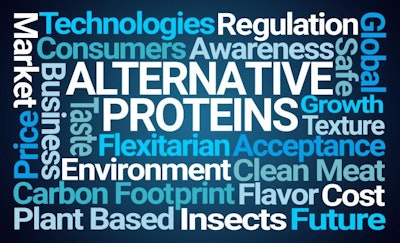
With a rise in climate consciousness, more consumers in the U.S. are substituting meat protein with alternative plant protein.
Due to the rise in consumer interest, the alternative plant protein industry is worth USD $29.4 billion as of 2020 and is projected to be worth over USD $162 billion by 2030 – 7.7% of the global protein market, according to Bloomberg Intelligence.
While 80% of U.S. consumers still prefer meat protein, 31% of consumers say they intend to supplant more of their diets with plant protein over the next five years, according to a survey of 1,010 adults by the University of Minnesota’s College of Food, Agricultural and Natural Resource Sciences department.
Consumer interest also differs by generation as the survey found that 26% of Gen X prefers plant protein and 44% of Gen Z said they are willing to pay more for plant protein options.
Environmental concerns are not the only motivation for consumers. An increase in health consciousness and a diversity of diets also contribute to consumers’ decisions at the grocery store.
“We’re listening to what the consumer is asking for and we’re listening to industry needs, and it’s all underpinned by what’s good for our environment,” said Pam Ismail, PhD, founder and director of the Plant Protein Innovation Center (PPIC). “The PPIC is where we come together to grow our research and accelerate progress.”
Some of that progress includes formulating pig diets to mitigate the impact on climate change like decreasing the output of ammonia and methane.
“It’s our responsibility as a research institution to discover new ways to feed a growing population while preserving and protecting our planet,” said Mike Schutz, PhD, professor and head of the University of Minnesota’s Department of Animal Science.
Some of the most popular plant-based alternatives in the U.S. include tofu or other soybean products, lentils, beans and seitan.
















